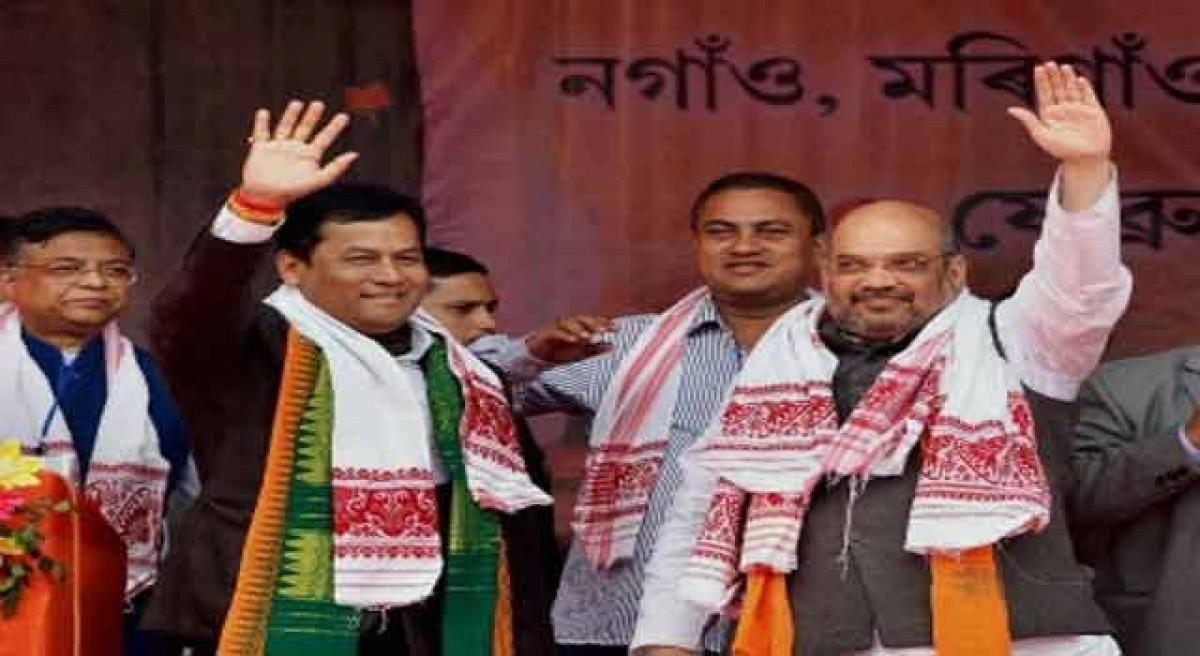Live
- FICCI FLO to organise Utkal FLO Bazaar
- KV inaugurates Vikash Mela
- Law and order has declined: Naveen
- 141 villages affected by flood in Balasore
- DC’s Playful Slush Dive Wins Hearts of Bantwal Youth
- 400 mobile phones handed over to owners
- Customs, Central GST staff donate to flood relief fund
- FMS Dental launches Neuromuscular Dentistry specialty
- MLA assures pensions to the eligible
- Himanshi Parashar opens up on not being comfortable with shooting intimate scenes
Just In

No reason for Congress to cheer. Left has something to cheer. BJP has every reason to be happy. The regional satraps still hold the sway. The results in West Bengal and Kerala are a classic study in contrast.
No reason for Congress to cheer. Left has something to cheer. BJP has every reason to be happy. The regional satraps still hold the sway. The results in West Bengal and Kerala are a classic study in contrast.
Despite an ideological compromise, the Left could not stem its decline in Bengal whereas it could register an impressive victory in Kerala, even as it stood firm on its ideological positions.
None can deny the fact that the Left had to enter into an alliance with Congress to face the oppressive onslaught of TMC. But the strange alliance seems to have breathed fresh air into Congress relegating the Left to humiliating third position.
The Left has a penchant for entering into States beyond their strongholds, especially the Hindi heartland. But, instead of expanding into new areas, the Left could only partially regain its stronghold.
On the contrary, the BJP could penetrate into Northeast and even make its presence felt in States like West Bengal and Kerala. The Left, therefore, has to reinvent its political narrative.
Alliances can work sometimes but need not do so every time. The alliances in West Bengal and Tamil Nadu, to which Congress is a party, failed to fructify but the BJP-led alliance in Assam is victorious.
Thus, chemistry prevails over arithmetic in politics. But, alliances remain critical. The BJP benefited immensely from its alliance with AGP and BPF in Assam. Despite overtures from AIUDF, the Congress displayed political arrogance and failed to sew up an alliance only to face the rout.
The DMK paid the price for failing to include Vijayakanth whose muddy presence in the fray might have further swung the balance in favour of AIADMK. This election yet again proves that anti-incumbency need not always be the electoral trend. The success of Jayalalithaa and Mamata Banerjee is a testimony to this.
In the Indian context, leaders matter a lot despite politics and parties playing up. Charismatic leaders who can galvanise the ground support into positive voting are certainly critical in the Indian elections. Among other factors, the leadership crisis seems to have taken a heavy toll on DMK in Tamil Nadu.
Despite a fragmented polity, voters across the five States gave a clear verdict. The spoilers failed to impact the verdict. The AIUDF in Assam, the Vijayakanth factor in Tamil Nadu, the BJP in West Bengal and Kerala could not alter the people’s resolve to give decisive verdicts.
There are specific local issues that defined the direction of the mandate in different States. For instance, illegal immigrants issue was always emotive in Assam.
The BJP could ride on this identity politics to score a resounding victory. Of course, the anti-incumbency against the 15-year rule of Congress did help the alliance. Apart from its politico-religious appeal, the BJP’s promise of acting tough on the question of illegal immigrants found favour with the Hindu electorate in the porous border State.
The critics may dismiss it as populism. Analysts may name it a welfare State. But, pro-poor schemes certainly helped Jayalalithaa overcome the anti-incumbency. No single factor determines a poll outcome. One can only draw broad contours of the mandate.

© 2024 Hyderabad Media House Limited/The Hans India. All rights reserved. Powered by hocalwire.com







